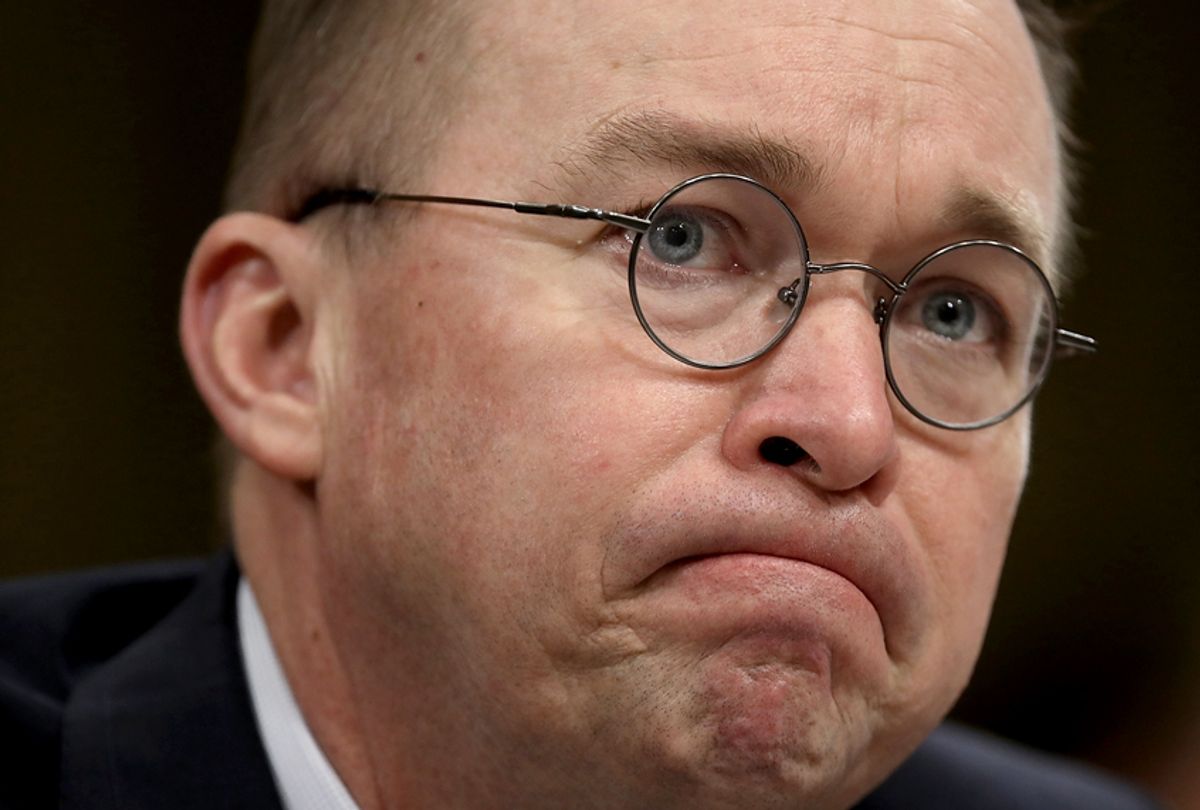In a move that threatens to take hundreds of millions of dollars from American workers who rely on tips to make a living, Office of Management and Budget (OMB) Director Mick Mulvaney sided with Labor Secretary Alexander Acosta and overruled the White House regulatory affairs chief by releasing a contentious rule about tip-pooling and knowingly withholding accurate data.
The rule, which has been pushed by the Department of Labor in recent months, would legally allow employers to profit off workers' tips — collectively pocketing an estimated $640 million more for employers — so long as the workers are at least paid the federal minimum wage. The Economic Policy institute, a progressive think tank, estimated that the real total employers could pocket could be as high as $5.8 billion.
Mulvaney's decision to side with Acosta's Labor Department and overrule the head of the White House Office of Information and Regulatory Affairs (OIRA) "allowed the department to delete from the proposal internal estimates showing businesses could take hundreds of millions in gratuities from their workers," three current and former executive branch officials told Bloomberg Law.
OIRA Administrator Neomi Rao fought to ensure the data be publicized. The OIRA's responsibility "is to ensure agencies assess and inform the public of the potential positive and negative economic effects of significant new regulations."
Bloomberg Law elaborated:
Acosta and his team elevated the dispute to Mulvaney, who as Office of Management and Budget director oversees OIRA, after Trump-appointed OIRA Administrator Neomi Rao and her staff attempted to block the Labor Department from issuing the tip pool regulation. Rao wanted the department to reinsert estimates quantifying how much workers could lose out on tips to their bosses, who would be allowed to participate in the tip pool.
While the $640 million certainly represents a large sum that American workers stand to lose, it could actually be an underestimate. It was reported by Bloomberg Law on Feb. 1, that "the department’s political leadership ordered new methodologies that progressively lessened the expected impact."
The OMB has denied that Mulvaney and Rao held different positions on the matter. "There is zero daylight between Director Mulvaney and Administrator Rao on regulatory policy," Coalter Baker, an OMB spokesman told Bloomberg Law.
"It’s pretty apparent that in this case and potentially others, that the administration and OMB are willing to manipulate the cost-benefit numbers to make them look good for their attempts to roll back regulatory protections," Amit Narang, a regulatory policy advocate at the progressive consumer rights advocacy group Public Citizen, told Bloomberg Law. "This is a transparency concern, a legal concern, and I think it’s got to be a concern for the legitimacy and the integrity of the deregulatory agenda writ large."
The news is a stunning example of the Donald Trump administration's willingness to omit and obscure public information in order to implement a deregulatory agenda that would further enrich the richest and most powerful. Bloomberg Law interviewed 15 former Cabinet agency and White House officials, and not a single one could give an example of a time in which the OIRA released information while knowingly excluding substantive available data.

Shares